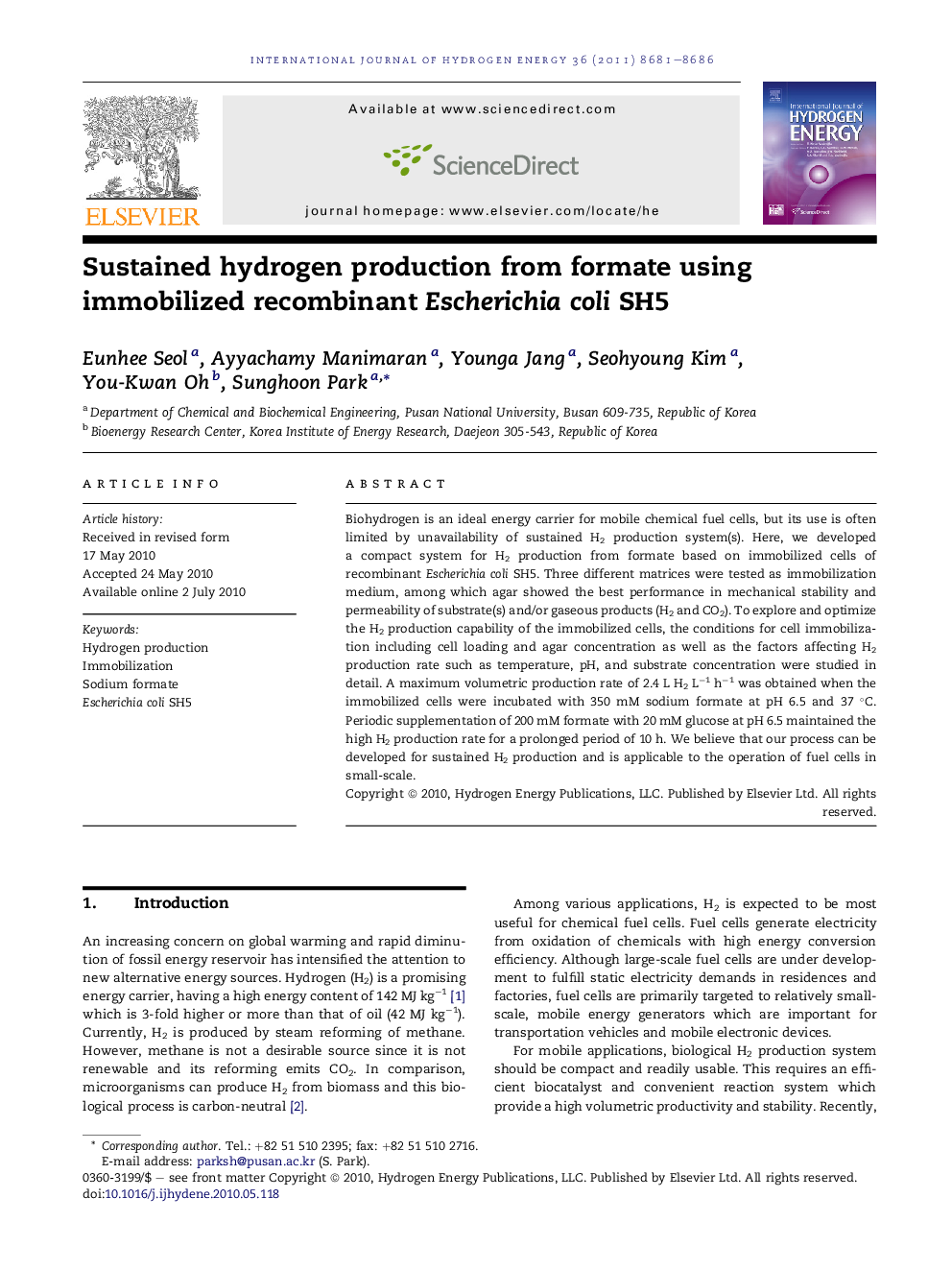| Article ID | Journal | Published Year | Pages | File Type |
|---|---|---|---|---|
| 1279187 | International Journal of Hydrogen Energy | 2011 | 6 Pages |
Biohydrogen is an ideal energy carrier for mobile chemical fuel cells, but its use is often limited by unavailability of sustained H2 production system(s). Here, we developed a compact system for H2 production from formate based on immobilized cells of recombinant Escherichia coli SH5. Three different matrices were tested as immobilization medium, among which agar showed the best performance in mechanical stability and permeability of substrate(s) and/or gaseous products (H2 and CO2). To explore and optimize the H2 production capability of the immobilized cells, the conditions for cell immobilization including cell loading and agar concentration as well as the factors affecting H2 production rate such as temperature, pH, and substrate concentration were studied in detail. A maximum volumetric production rate of 2.4 L H2 L−1 h−1 was obtained when the immobilized cells were incubated with 350 mM sodium formate at pH 6.5 and 37 °C. Periodic supplementation of 200 mM formate with 20 mM glucose at pH 6.5 maintained the high H2 production rate for a prolonged period of 10 h. We believe that our process can be developed for sustained H2 production and is applicable to the operation of fuel cells in small-scale.
